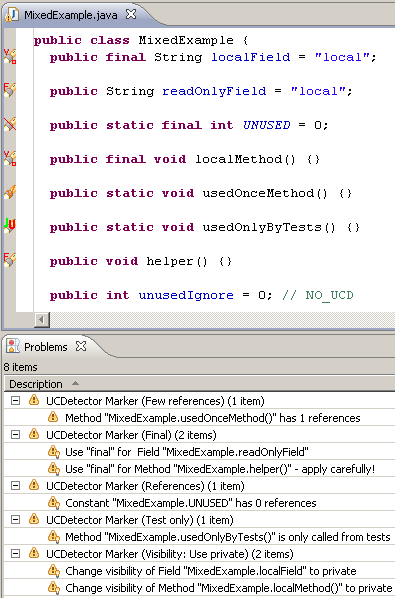An important step before implementing the new feature, is to refactor the relevant parts of the application in order to make the change easier to implement (and more understandable).
I noticed that parts of the code or modules are probably not used anymore. To make the refactoring process easier and more effective, it's probably a good idea to locate and remove dead code. Refactoring dead code is a waste of energy! I've found an Eclipse plugin in the Eclipse Marketplace called Unnecessary Code Detector, which helps me locating dead code.
A first run of UCD results in a bunch of markers on code locations, where UCD thinks the code is unused. It also places markers on locations where the "visibility" of variables and methods could be improved.
The tool enables me to quickly find classes and methods with no references. I always do a double check with a "text find" on the whole project, to make sure the code is really not used. Because I'm using Spring, some of the classes are only referenced and used in the XML file. This type of reference is not detected by UCD, and it results in false positives. I annotate these locations with @SuppressWarnings("ucd"), which will stop UCD from marking them as unused code in the future.
In my opinion, Unnecessary Code Detector is a very valuable tool for the Java Developer. Give it a try!
